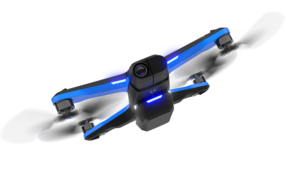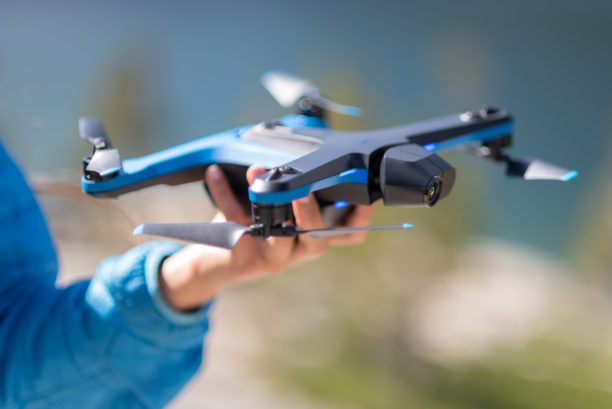
Drone manufacturers around the world are struggling to meet production schedules as the coronavirus continues to impact Chinese manufacturing systems.
U.S.-based Skydio assembles drones in the U.S.: but the company is suffering from the supply-chain disruption caused by the slowdown in manufacturing of the component parts. Advance customers of the sought-after Skydio Beacon received an email stating that Skydio had sold out of Beacons in stock and were working to get product back on the shelves. “…a growing number of component suppliers around the world are experiencing slowdowns or shut-downs in reaction to the COVID-19 virus, which impacts the availability of subcomponents in a snowball effect,” says the email.
DJI, the largest drone manufacturer in the world, is working to limit the impact on customers: but says that shortages may occur. “There may be some disruptions in the supply chain of raw materials that could lead to delays in shipment. While this is outside our control, we will continue to monitor the situation closely and adapt to developments accordingly,” a DJI spokesperson told Commercial Drone Professional.
Blame the new coronavirus strain, not the manufacturers. Since the outbreak, China has done what the World Health Organization has called “the most ambitious, agile, and aggressive disease containment effort in history.” That containment effort led to the lockdown of Wuhan and nearby cities in Hubei province. At least 50 million – yes, million – people have been under a mandatory quarantine since January 23, 2020. Additionally, the Chinese government has been educating the populace and asking them to adopt “social distancing” measures. That means the cancellation of business meetings and conferences, and means taking special measures on all aspects of manufacturing. Manufacturers are placed in the situation of honoring not only the legal obligations to limit possible contagion, but their responsibility to their staff and supply chain. The world’s largest manufacturing center has been severely crippled – and every battery, gimbal, prop, camera, or small piece of plastic manufactured in China has become harder to get.
These extreme measures may be beginning to ease. China’s efforts to control the outbreak have been, according to world health officials, extremely effective. But even if the disruption proves to have lasted only a couple of months, it may take twice that long for manufacturers to get component stock up to normal levels.
As the drone industry feels the effect of the disruption in manufacturing, they are also working to help solve the problem. DJI has committed funds to the fight against the coronavirus, and has worked with health officials to modify spraying drones to disburse disinfectant. Drones have also been used for delivery of supplies to quarantined areas – a perfect solution for limiting human contact. Drones are proving that they can provide solutions to urgent problems – in the long run, that may help the drone industry more than the manufacturing slow down hurts it.
Miriam McNabb is the Editor-in-Chief of DRONELIFE and CEO of JobForDrones, a professional drone services marketplace, and a fascinated observer of the emerging drone industry and the regulatory environment for drones. Miriam has penned over 3,000 articles focused on the commercial drone space and is an international speaker and recognized figure in the industry. Miriam has a degree from the University of Chicago and over 20 years of experience in high tech sales and marketing for new technologies.
For drone industry consulting or writing, Email Miriam.
TWITTER:@spaldingbarker
Subscribe to DroneLife here.
